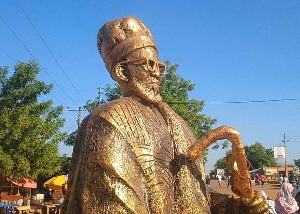
Vice President Mahamudu Bawumia recently claimed that he was the first incumbent presidential candidate in Ghana's Fourth Republic to admit loss prior to the formal announcement of election results, a claim that former Special Prosecutor Martin A. B. K. Amidu has categorically refuted. Amidu made a forceful rebuttal, recalling that in 2000, before the Electoral Commission (EC) officially announced the results, Professor John Evans Atta Mills, the then-Vice President and presidential candidate for the National Democratic Congress (NDC), also admitted defeat to John Agyekum Kufuor, the candidate of the New Patriotic Party (NPP).
Amidu cited the well reported incident that followed the 2000 presidential runoff elections in his written declaration. On December 29, 2000, Mills congratulated Kufuor after he realized the NPP had won, indicating a seamless handover of power. The media and election officials at the time confirmed Mills' acknowledgment of the NPP's victory, in addition to his phone call to Kufuor. Although the results have not yet been formally announced, Mills' tactful handling of possible election tensions and averting any fears of violence was greatly commended both domestically and internationally.
Bawumia's recent claims to be the first incumbent to admit loss, according to Amidu, were "economical with the truth." He argued that Bawumia could not have forgotten this crucial occasion since he was a politically astute individual who was deeply interested in Ghana's electoral past. Additionally, Amidu suggested that Bawumia's failure to remember Mills' prior capitulation was either a premeditated ploy to strengthen his position as a statesman, possibly in anticipation of the 2028 presidential contest, or an act of political opportunism.
Beyond Bawumia's false statement, the former Attorney General's criticism touched on a more general matter of political honesty. According to Amidu, Ghana's Constitution could only endure if national interests were given precedence above false narratives and self-serving or party-serving acts. Amidu believed that Bawumia's portrayal of his concession as unusual was a part of a well-planned public relations campaign that misrepresented history in order to further his political agenda.
Amidu also criticized the narrative, saying it was false, that implied Bawumia had made a concession in early 2024 to avoid problems. He emphasized that before Bawumia made his own concession, Sammy Gyamfi, the NDC's national communications officer, had already alerted the public to election trends that suggested the party may win. Amidu claims that Bawumia was essentially slow to admit loss until the data and public pressure made it evident that the NDC had won by a landslide, which was already evident from the information Gyamfi had given to the media days earlier.
Additionally, Amidu reminded the populace of comparable acts performed by influential politicians in past campaigns. For instance, before the EC formally announced the results of the 2016 elections, outgoing President John Dramani Mahama acknowledged defeat to then-opposition leader Akufo-Addo. Further casting doubt on Bawumia's claim that he was the first incumbent candidate to do so was this precedence.
Source: Modern Ghana